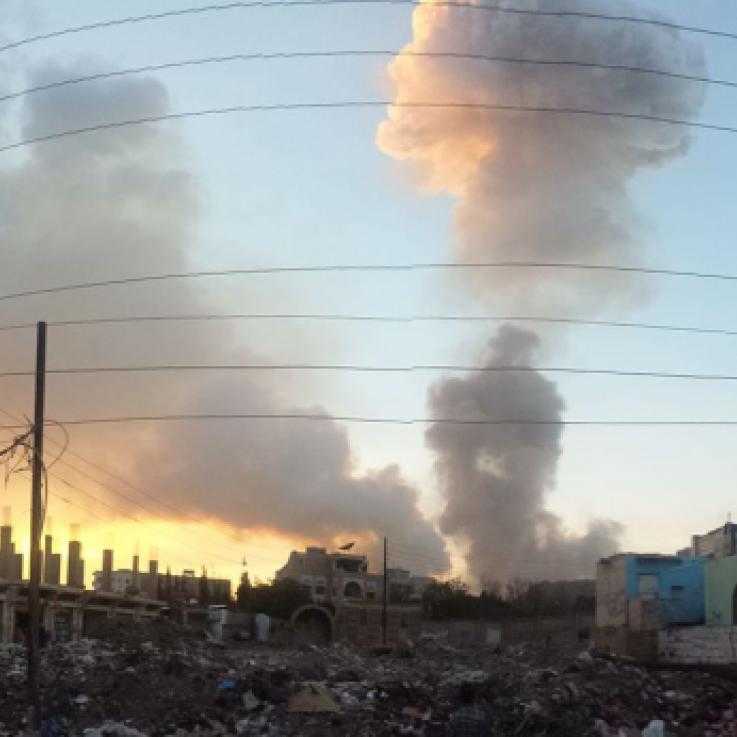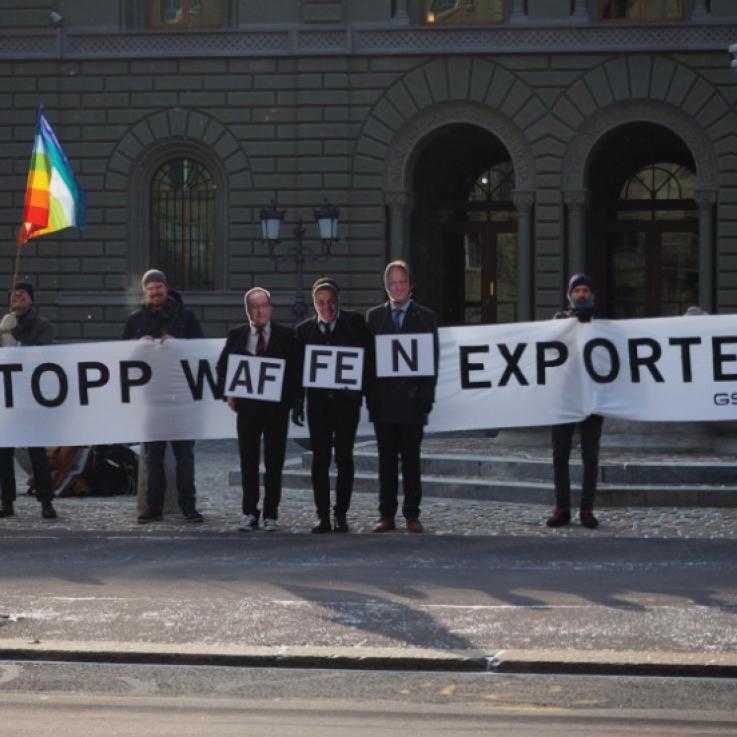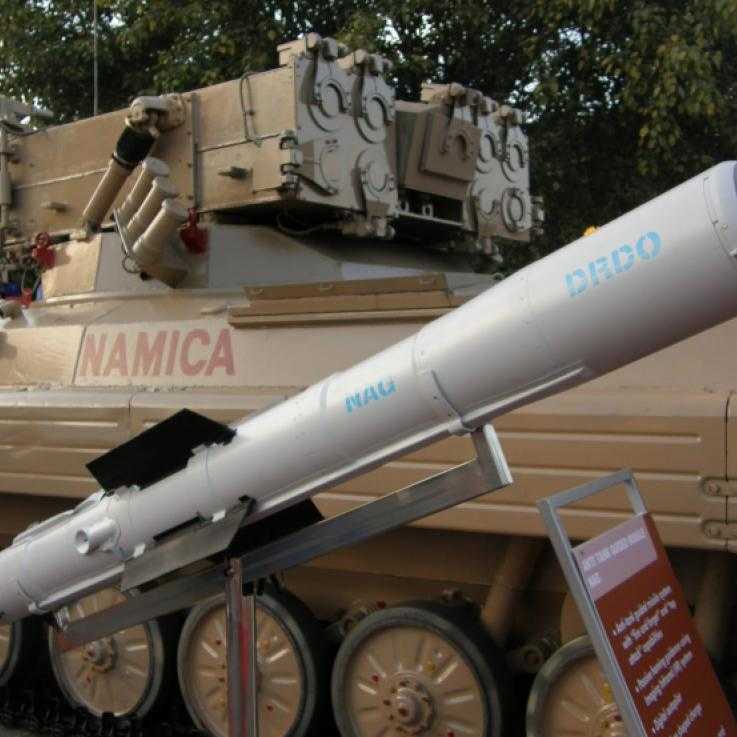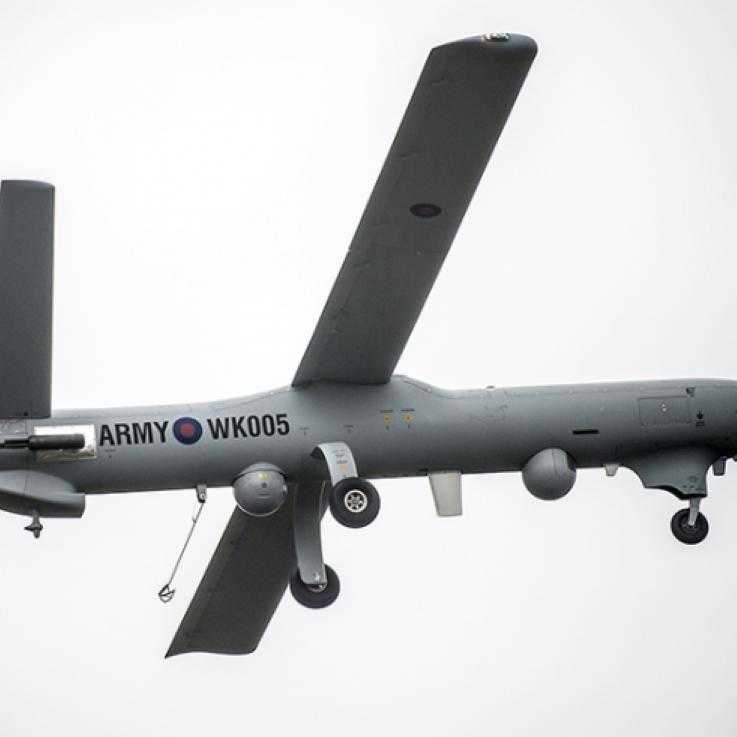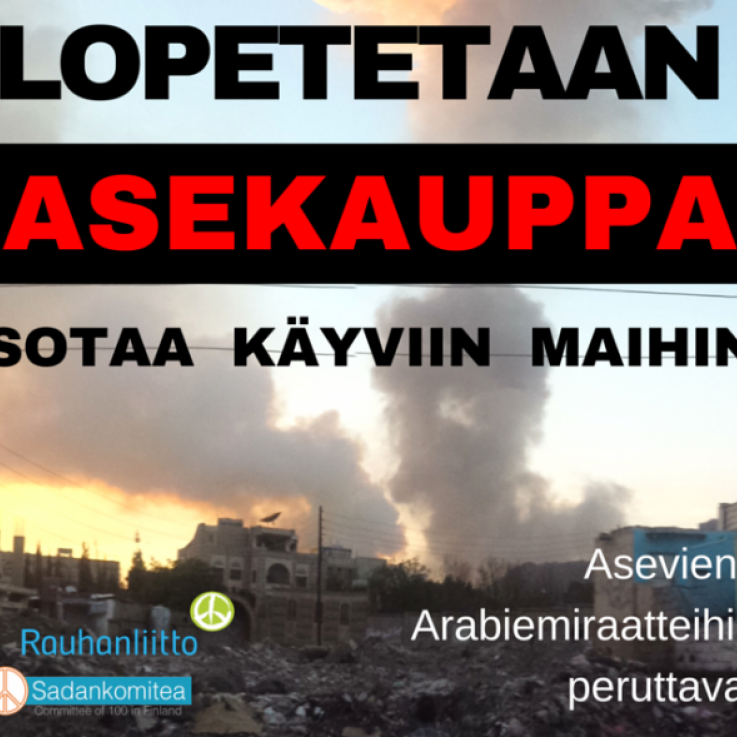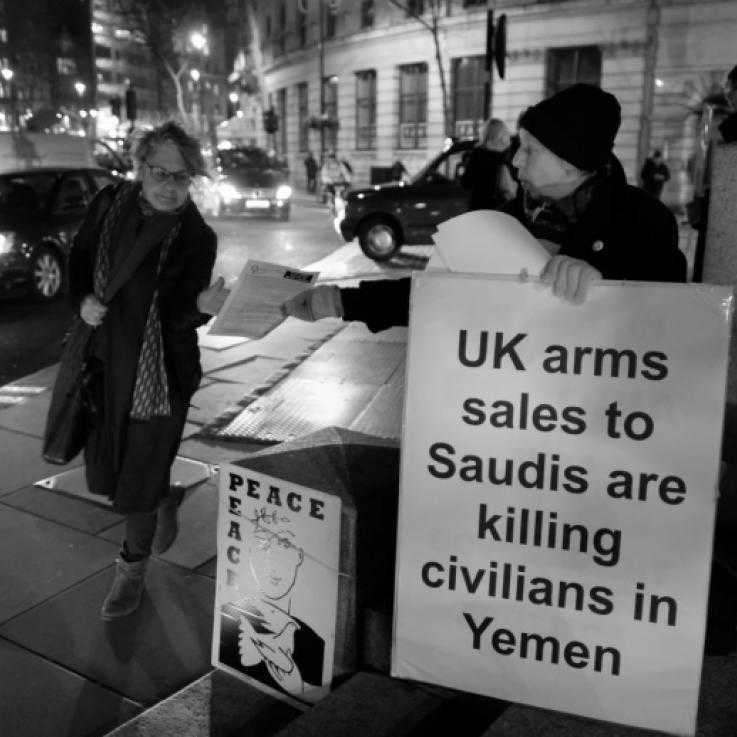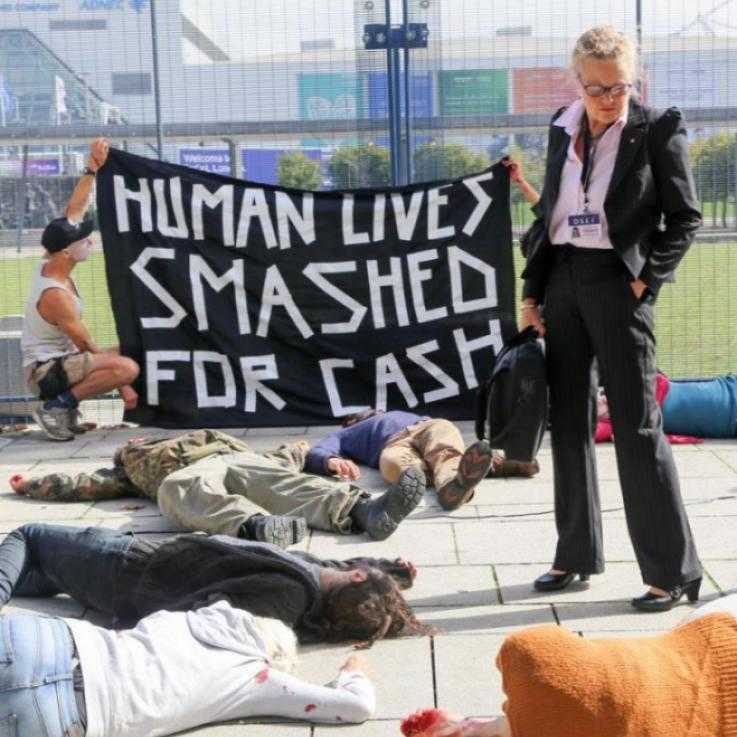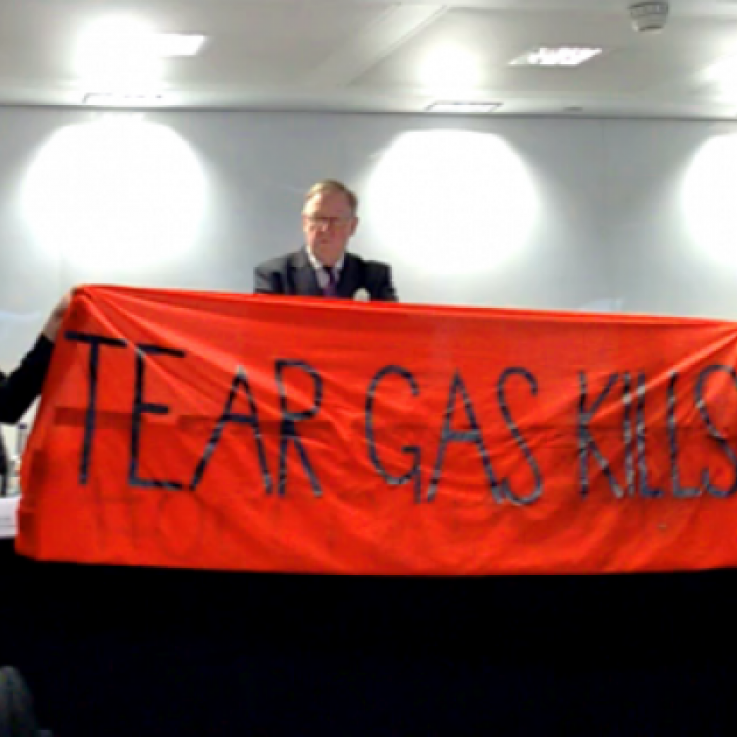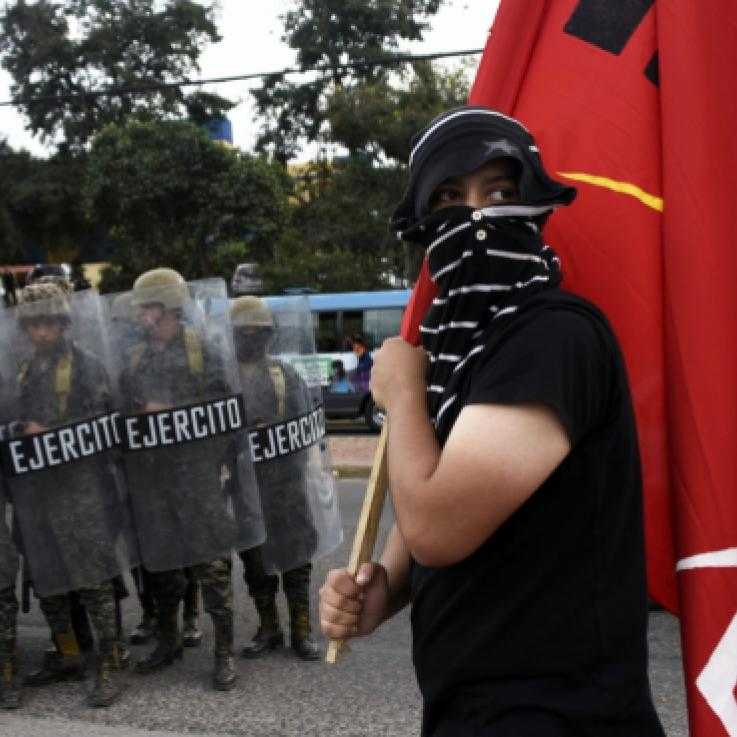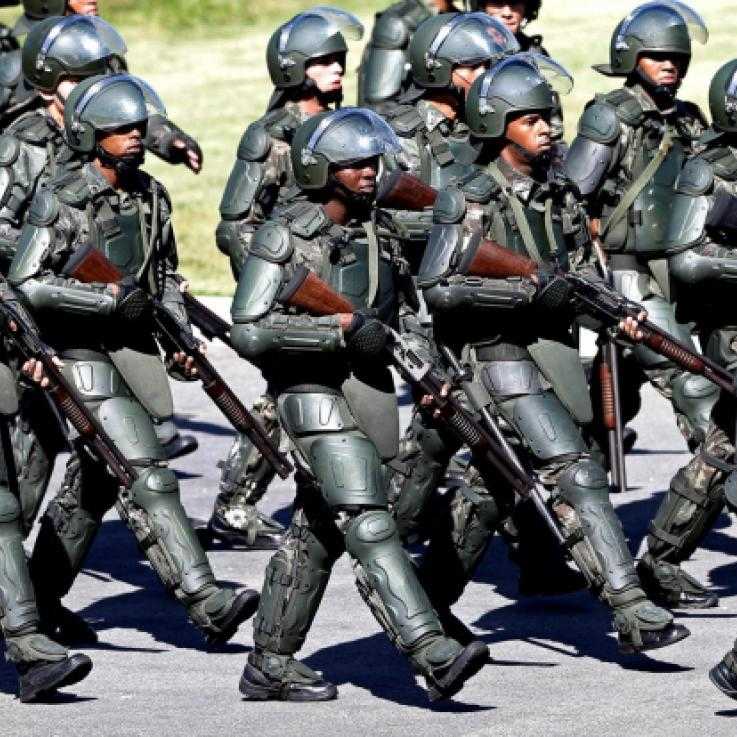Economics is one of the key causes of war - wherever there is a military conflict, someone is profiting from it. We call this "war profiteering".
WRI looks at war profiteering in a broad sense - we consider all companies and initiatives that benefit financially from military conflict as war profiteers, in some sense. This includes the arms trade and companies profiteering for the privatisation and outsourcing of the military, but also those extracting natural resources in conflict zones, financial institutions investing in arms companies, and many others.
WRI publishes a quarterly magazine called War Profiteers' News (in English and Spanish), and organises events to bring campaigners and researchers together to share strategies against war profiteering. In 2017 we will gather members and friends of the WRI network in London, for a seminar called “Stopping the War Business”. Campaigners will share experiences and strategies of countering the arms trade and other war profiteers. The seminar will take place at the same time as the DSEI arms fair, where we will also take nonviolent direct action together. In 2015, we organised a similar event in Seoul, South Korea, which took place at the same time as the ADEX arms fair.
